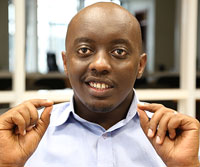TWENTY YEARS on, the effects of the Genocide committed against the Tutsi in Rwanda still linger. However, with the introduction of the Ndi Umunyarwanda campaign, there’s hope that Never Again will remain not in words, but will become reality.


TWENTY YEARS on, the effects of the Genocide committed against the Tutsi in Rwanda still linger. However, with the introduction of the Ndi Umunyarwanda campaign, there’s hope that Never Again will remain not in words, but will become reality.
Across the country, individuals and families face complex social issues which are a result of 1994 Genocide.
Imagine a 24-year-old girl, born to a Tutsi mother and a Hutu father who killed the mother and her family and is now serving his sentence for those crimes.
The young woman doesn’t know where she fits in society since both families are uncomfortable with her, with her maternal side accusing her of belonging to a genocidal patrilineality, while her father’s side will most likely not warm up to her for obvious reasons.
Think of a man recently out of prison, having killed eight of his neighbours; he doesn’t know where to go to escape the guilt and shame. The only way out is to seek forgiveness from his neighbours; these are just a fraction of the many scenarios that make this a unique society.
These examples are far from extreme; they are all too commonplace. And some people raise questions about how a country, which suffered a tragic history, can become unified and build a society in which ethnicity does not mean divisionism.
This is what Ndi Umunyarwanda, or I am Rwandan, sets out to correct. Our country has come a long way since 1994. On socio-economic front, indicators such as GDP, the figures undisputedly point to steady, if not extraordinary progress. In reconciling the Rwandan social fabric, the country has amazingly done very well.
However, how does one adequately measure the restored trust in a society that is still openly seeking common understanding of its past? How does one look through someone’s heart and say, yes this person is healed, has forgiven, repented, or reconciled? And if we do look into their hearts, at least virtually, and we don’t like the answer, how do we respond?
Young Rwandans have chosen to express themselves so clearly and ensure they do not forever carry the inherent guilt and shame from their parents. Henceforth, those, whose parents committed the Genocide in 1994, disassociated themselves with those crimes.
As I listen to radio and read newspaper articles, some discussions on Ndi Umunyarwanda have at times dwelt on questioning the process of "Hutus seeking forgiveness”, especially when those who did not commit the crime are the ones taking the lead.
This line of argument and reasoning misses the target. Ndi umunyarwanda intends to seek a social way to heal our society from the wounds bequeathed to us by the history this country went through.
Speaking out the guilt and shame caused by this dark past opens way for the healing process.
The unity of a healthy people is more productive than that of a people who are suspicious of each other. We don’t have to carry on the burden of guilt, shame and anger; so confessing and seeking forgiveness, and forgiving, is a scientific healing process not only limited to Rwanda.
Ndi Umunyarwanda does not only come to us as a celebration, but a source of power, unity for more strategic sustainable development and a covenant to each to express Never Again shall we be divided, exploited and used.
But rather work even harder for a sure future establishing our destiny and dignity which we can no longer entrust with other people but ourselves to safeguard with caution.
Twitter: KimKamasa


